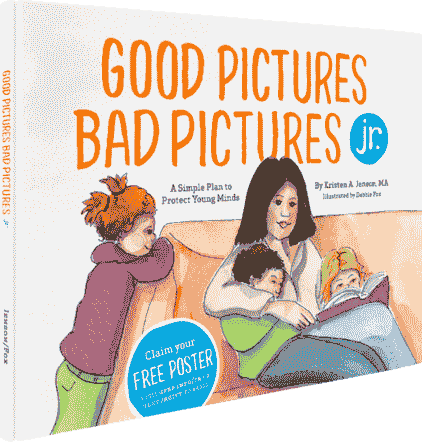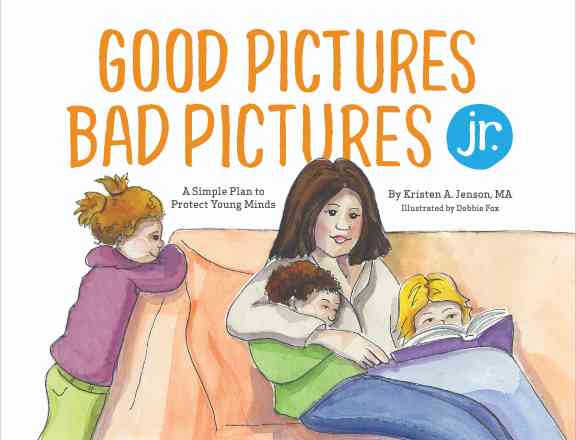

The Truth About App Store Ratings Most Parents Don’t Know
Let’s play a quick game. What do the following apps have in common?
- A party game that dares players to “run outside naked”
- A kids’ messaging app flooded with creepy strangers
- An AI girlfriend simulator that “understands you better than anyone”
- A fasting app that encourages children to skip meals for 20 hours a day
Answer? They’re all available on Apple’s App Store—and rated as safe for kids.
Yep. You read that right.

According to a report from the Heat Initiative and ParentsTogether Action, Apple’s App Store is overflowing with apps that should make any parent’s skin crawl. Researchers found more than 200 apps labeled 4+, 9+, or 12+ that featured sexual content, dangerous strangers, or harmful body image messages.
What’s worse? These aren’t obscure downloads. These apps have been downloaded over 550 million times, and many are in the App Store’s top charts.
Apple dominates kids’ devices—that’s a problem
It’s not that other app stores are doing much better—but Apple dominates the youth market in a way that makes its failures especially dangerous:
- 87% of U.S. teens own an iPhone
- 90% of K–12 schools use iPads
- 70% use other Apple devices
So when Apple’s App Store lets unsafe apps slip through the cracks, they’re not reaching just a few kids—they’re reaching most.
The real dangers behind the App Store’s age ratings
In a 24 hour time span, researchers reviewed nearly 800 high-risk apps. More than 200 of them were rated as appropriate for kids ages 4, 9, or 12—despite shocking content. Here are just a few of the worst offenders:
- Sexual games: Exposed 2 – Party Lab Edition includes modes like “XXXSpicy” and encourages users—including kids—to imagine sexy photo shoots or run around naked as a dare.
- Stranger chat apps: Renz connects kids with adult strangers and has been linked to real-life sextortion cases.
- Anonymous messaging: Apps like Text Vault let kids create burner numbers and delete messages—tools commonly used by predators.
- AI Girlfriend apps: Debra AI Girlfriend Simulator (rated 4+) encourages emotionally vulnerable kids to form “relationships” with bots.
- Beauty & diet apps: Dozens of apps promote extreme fasting, body shaming, and “hotness” ratings—all while claiming to be safe for kids.
Apple’s App Store is full of apps that no child should be using—and yet they’re labeled for kids.
Apple’s position? Read it for yourself:
“It’s easy to make sure your kids are engaging with age-appropriate content. Here are some ways to manage their activity.
The App Store makes it easy to find suitable apps for younger users in the children’s sections of the App Store. Our Kids category pages cater to specific age ranges (5 and under, 6–8, and 9–11) and feature apps and games that developers have self-identified as being appropriate for those age groups.
That way, parents can easily find great apps and games they know are suitable for their children.”
— Apple’s Parent’s Guide to the App Store
In other words, “trust us.” And trust the developers to “self-identify” the appropriate age range for their apps. Uh-huh. Right.
We’ll pass.
Why App Store age ratings are failing kids
Let’s talk about ratings. Movies, TV, and video games all use independent third-party systems to protect kids:
- Movies → Rated by the Motion Picture Association (MPA)
- TV shows → Rated by the TV Parental Guidelines Board
- Games → Rated by the Entertainment Software Ratings Board (ESRB)
Apple? Nope. Developers self-report using a short questionnaire—and that’s it. No oversight. No experts. No double-checking.
And who benefits from that system?
Apple and app developers—who profit from more downloads, including from kids.
Once again, Apple is prioritizing profits over child safety. Color us NOT surprised.
Related: Surprising Reasons Why iPhones Aren't Safe for Kids: Warning from an IT Expert Mom
[[CTA]]
Utah passes law requiring App Store age verification
In a move that made international headlines, Utah became the first state to pass a law requiring app stores to verify user ages and get parental consent before minors can download apps. It's called the App Store Accountability Act. And yes—it applies to all app stores, not just Apple.
Under the law:
- App stores must request age info up front.
- If a minor opens an account, the app store must link it to a parent's account.
- Parents must approve downloads that include purchases or terms.
Utah State senator Todd Weiler put it best:
“It’s a lot easier to target two app stores than it is to target 10,000 developers.”
And now sixteen other states are exploring similar legislation. Let’s hope this momentum sticks.
6 smart ways parents can protect kids from App Store dangers
Legislation takes time. Your child’s safety can’t wait. Here’s what you can do today:
- Disable the App Store completely. Yes, really. If your child deletes an app (to hide it from you), or you delete an app because you no longer want them to have it, they can redownload it without permission—unless the App Store is locked. This is because once an app has been downloaded, it remains associated with the user's Apple ID, and future downloads are not blocked by parental controls.
Learn how to disable Apple’s App Store in this tutorial.
- Don’t automatically trust 4+, 9+, or 12+ ratings. They’re often wildly inaccurate. Many of the worst apps in the report were rated for preschoolers.
- Read the reviews. Look for red flags in the comments—“predators,” “inappropriate,” “unsafe.”
- Avoid apps with chat, AI bots, or anonymous messaging. These are high-risk zones for grooming and sextortion.
- Try the app yourself first. Give it a test run for a few days or even weeks. Watch the ads. Explore the settings. See what your kid would experience.
- Learn to recognize dangerous app features. Don’t just ask “What are the worst apps for kids?” Learn the red flag features so you can discern for yourself. Find out how in How to Spot the Most Dangerous Apps for Kids written by Titania Jordan of Bark Technologies.
Tools from Defend Young Minds
Protecting your kids in a digital world isn’t easy—but you’re not powerless.
Yes, the App Store is a mess. Yes, Big Tech has priorities to shift and changes to make. But you are your child’s best defense—and you don’t have to do it alone.
At Defend Young Minds, we’re here to give you the knowledge, the tools, and the confidence to raise kids who can recognize and reject harmful content—and grow up safe and strong, both online and off.
Explore these parent-friendly tools:
- Good Pictures Bad Pictures books – to start crucial conversations about rejecting pornography
- Brain Defense: Digital Safety curriculum – perfect for classrooms, families, or youth groups
- Guides & planners – including our free Digital Safety Planner and our low-priced My Kid Saw Porn—Now What? for what to do if your child has seen pornography
Don’t wait for the tech companies to get it right. You can take charge today—and we’ll be with you every step of the way.



Good Pictures Bad Pictures Jr.
“I highly recommend this book to all people with children. A must have for all parents!” —Amazon Review







